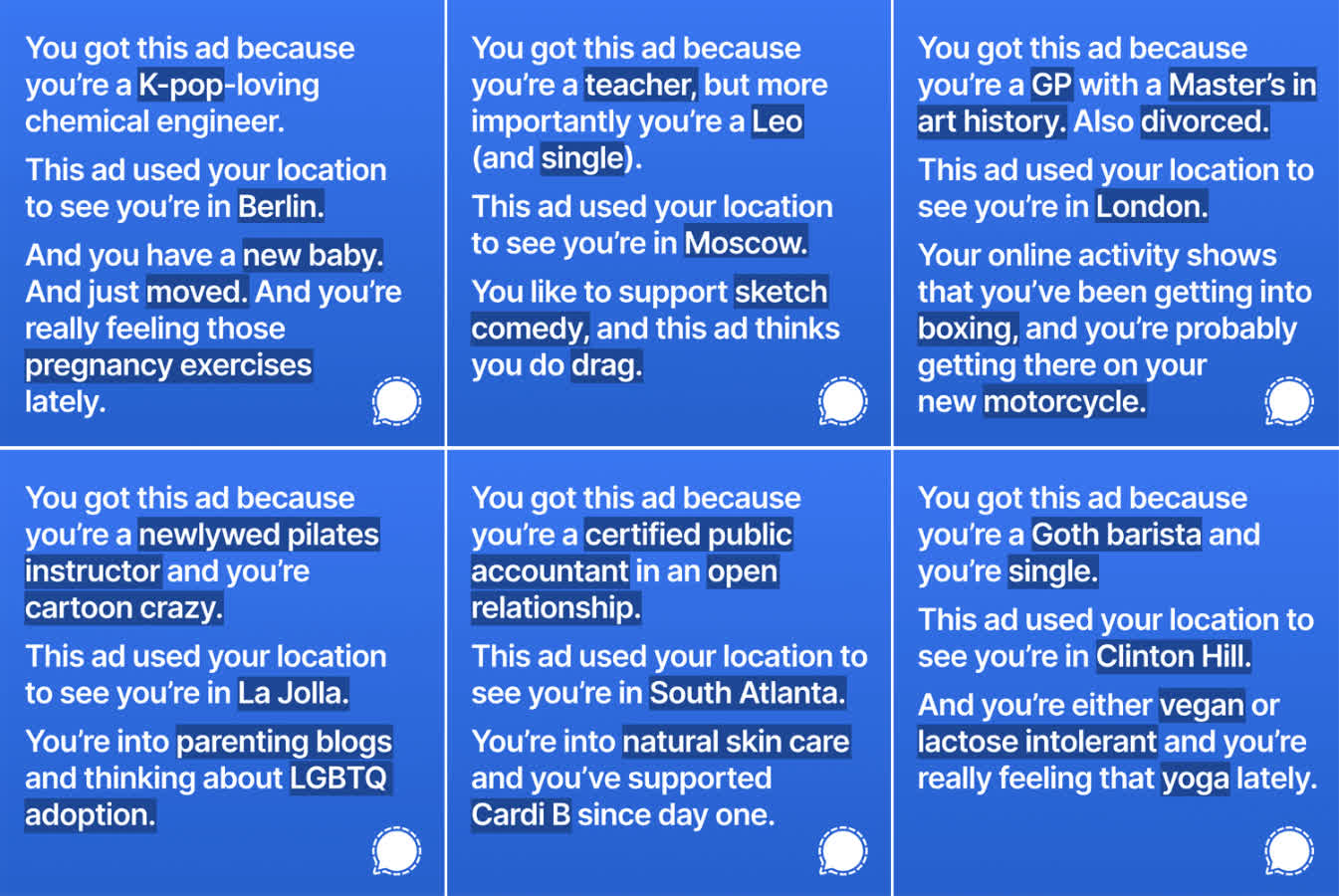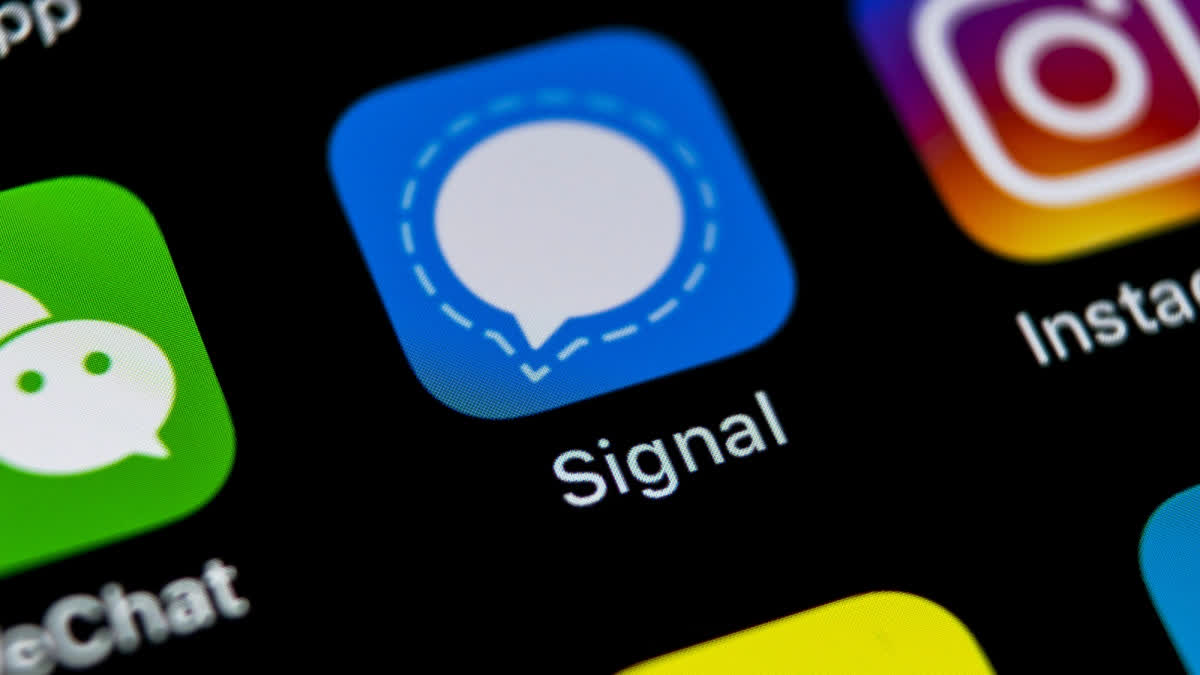A hot potato: Signal, the encrypted messaging app that recently exploded in popularity, attempted to run an Instagram ad campaign to show users how the social media platform targets and sells their personal information using its own ad tools. Not so fast, said Facebook, which then proceeded to shut down Signal's advertising account.
User privacy and social media have always had a complex relationship, spawning endless debates on regulation, tracking online user behaviour and data collection. It's why some companies have increasingly started to push privacy as a core feature of their products.
Signal, the encrypted messaging app, gained worldwide popularity based on the same premise, and it's not surprising to see the company highlight privacy issues present on rival platforms. In a blog post titled "The Instagram ads Facebook won't show you," Signal reveals how it got banned from trying to buy ads that would show Instagram users what personal data is collected by Facebook and how it's used to push targeted ads.

Signal says that Facebook doesn't build technology for users, but instead for their data. It argues that the ad tools developed by Facebook have the "potential to divulge what is otherwise unseen," noting that its Instagram ad campaign was to display some of the user information collected by the platform. "Facebook is more than willing to sell visibility into people's lives, unless it's to tell people about how their data is being used," says the privacy-focused company, whose advertising account was banned for attempting to show these ads on Instagram.
The social media giant has also been engaged in a similar privacy battle with Apple, which recently released iOS 14.5.1 with an ad tracking opt-out feature that lets users block apps from cross-service tracking and pushing targeted advertising.
